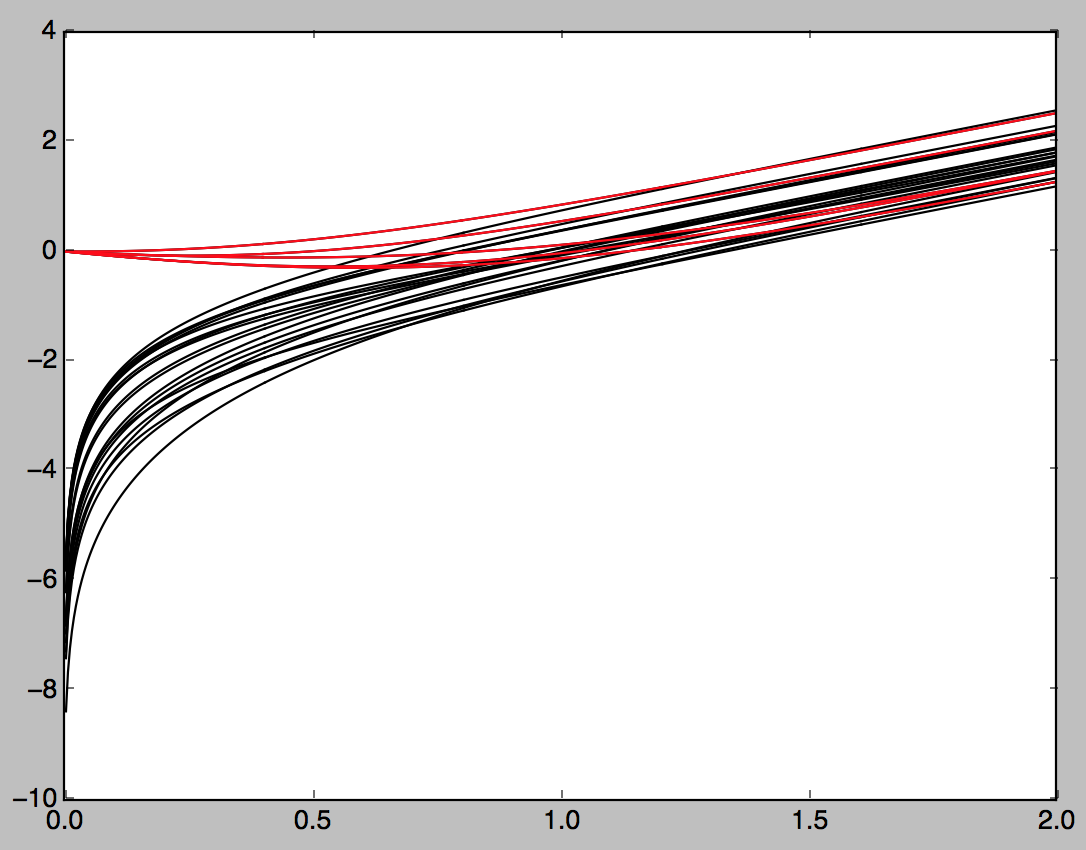Let $A$ be a Metzler matrix, i.e. a real matrix (not necessarily symmetric) whose off-diagonal elements are all non-negative. Then, for $t\ge 0$, the matrix exponential $\exp(At)$ will have all non-negative elements.
My question isNumerically, it seems that given a single off-diagonal element of $\exp(At)$, is it is always a log-concave (i.e. log-convex downward) function of $t$, for $t\ge 0$?, and that the diagonal elements are always log-convex upward functions.
That is, isit looks like the function $$ f(t) = \log\Big(\big(\exp(At)\big)_{ij}\Big) $$ ais a concave function of $t$ for $t\ge 0$? if $i\ne j$, and a convex function of $t$ if $i=j$. My question is whether this indeed is the case. Note that in this expression $\exp$ is a matrix exponential, but $\log$ is just an ordinary logarithm of a positive number.
By "concave" I mean convex downward, iHere is a typical result.e The plot shows each element of $\exp(At)$ as a function of $t$, where $A$ is a matrix whose off-diagonal elements are independently uniformly sampled from $[0,1]$ and whose diagonal elements are independently uniformly sampled from $[-1,0]$. with decreasing slopeThe diagonal elements of $\exp(At)$ are shown in red.
Showing this should be a simple case of finding the second derivative and showing that it can't be positive, but I haven't seen a way to do that. I haven't been able to find a counterexample either.

